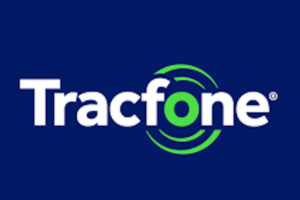
Following its acquisition by Verizon, TracFone self-identified and reported to the FCC and the Universal Service Administrative Co. certain instances in which it may have violated the rules of two programs, Lifeline and the Emergency Broadband Benefit, which lower the cost of communication services for those who qualify.
“Whether attributable to fraud or lax internal controls, or both, we will vigorously pursue allegations of misconduct that harms critical FCC programs designed to help those most in need of communications-related services,” said Loyaan Egal, enforcement bureau chief at the FCC. “This settlement sends a strong message that we are determined to protect the integrity of these programs. I want to thank the Enforcement Bureau’s Investigations and Hearings Division for its outstanding work on this matter.”
Improper Claims
The Enforcement Bureau investigated TracFone’s procedures for determining customer usage, which are critical for ensuring public funds are not subsidizing unused connections. TracFone disclosed that its internal processes resulted in Lifeline claims for customers who had not used the service in the prior 30 days, contrary to the Commission’s rules. Specifically, TracFone’s internal systems: 1) improperly considered a subscriber’s receipt of an inbound text message to constitute qualifying Lifeline usage; and 2) improperly claimed support for a group of customers who were enrolled jointly in both the Lifeline and EBB programs, but did not use one of the services in the prior 30-day period.
TracFone also disclosed that a group of its field enrollment representatives used falsified tax documents to enroll subscribers in TracFone’s Lifeline and EBB services. After working with auditors, TracFone reimbursed the Universal Service Fund a total of $22.6 million for Lifeline from January 2019 through October 2021 and also paid back $17.8 million in EBB funds. TracFone further disclosed 79 field enrollment agents who were paid commission-based compensation tied to the number of customers enrolled, despite the FCC’s rules prohibiting such arrangements.
To resolve these matters, TracFone entered into a Consent Decree with the Enforcement Bureau in which it agreed to a series of terms and conditions for future compliance that take into consideration TracFone’s voluntary disclosures and its cooperation during the investigation. In addition, TracFone has also agreed to pay $6.013 million to resolve a 2020 NAL alleging the company claimed federal Lifeline funding for thousands of Texas customers who apparently were not eligible for the program, as well as enrollments in Florida that resulted from sales agents apparently manipulating customer data to create fake accounts.
TracFone Consent Decree Details
Among the requirements of complying with the consent decree are the following conditions, among others:
1) Compliance Officer: Within 30 calendar days after the effective date, TracFone must designate a senior corporate manager with the requisite corporate and organizational authority to serve as a Compliance Officer and to discharge the duties set forth in the decree. The person designated as the Compliance Officer shall be responsible for developing, implementing, and administering the compliance plan and ensuring that TracFone complies with the terms and conditions of the consent decree.
2) Operating Procedures: Within thirty 30 calendar days, TracFone shall establish Operating Procedures that all covered employees must follow to help ensure TracFone’s compliance with the Lifeline Rules. TracFone’s Operating Procedures shall include internal procedures and policies specifically designed to ensure that it does not submit claims for reimbursement for subscribers who are ineligible because they lack qualifying usage of Lifeline service, that ineligible subscribers are timely identified and de-enrolled, that enrollments in Lifeline conform to the customer eligibility determinations.
3) Compliance Manual: Within 60 calendar days, the Compliance Officer shall develop and distribute a Compliance Manual to all Covered Employees. The Compliance Manual shall explain the Lifeline Rules and set forth the Operating Procedures that Covered Employees shall follow to help ensure TracFone’s compliance with the Lifeline Rules. TracFone shall periodically review and revise the Compliance Manual as necessary to ensure that the information set forth therein remains current and accurate.
4) Compliance Training Program: TracFone shall establish and implement a Compliance Training Program on compliance with the Lifeline Rules and the Operating Procedures. As part of the Compliance Training Program, Covered Employees shall be advised of TracFone’s obligation to report any noncompliance with the Lifeline or EBB Rules and shall be instructed on how to disclose noncompliance to the Compliance Officer. Compliance training pursuant to the Compliance Training Program shall be an annual requirement.
5) Reporting Noncompliance: TracFone shall report any material noncompliance with the Lifeline or EBB Rules or with the terms and conditions of this Consent Decree within 30 calendar days of a report made to the Compliance Officer. In complex cases that require additional investigation, TracFone may seek up to an additional 30 calendar days, which shall not be unreasonably denied, to make such a report of material noncompliance.
6) Compliance Reports: TracFone must file compliance reports with the Commission 90 calendar days after the Effective Date, 12 months after the Effective Date, 24 months after the Effective Date, and 36 months after the Effective Date. Each Compliance Report shall include a detailed description of TracFone’s efforts during the relevant period to comply with the terms and conditions of this Consent Decree and the Lifeline Rules.
The Lifeline program provides a monthly discount of up to $9.25 on broadband and phone service for qualifying low-income consumers. Carriers participating in the program receive funds for each eligible Lifeline subscriber and must pass the savings on to those subscribers. The Lifeline program is paid for using Universal Service Fund dollars, and that money comes from fees assessed on the phone bills of American consumers and businesses. The separately funded EBB program helped lower the cost of high-speed internet and connected devices for eligible households in 2021 during the COVID-19 pandemic. ![]()
Joseph McCafferty is editor & publisher of Compliance Chief 360°.

